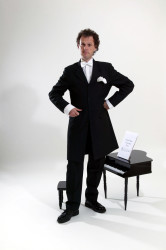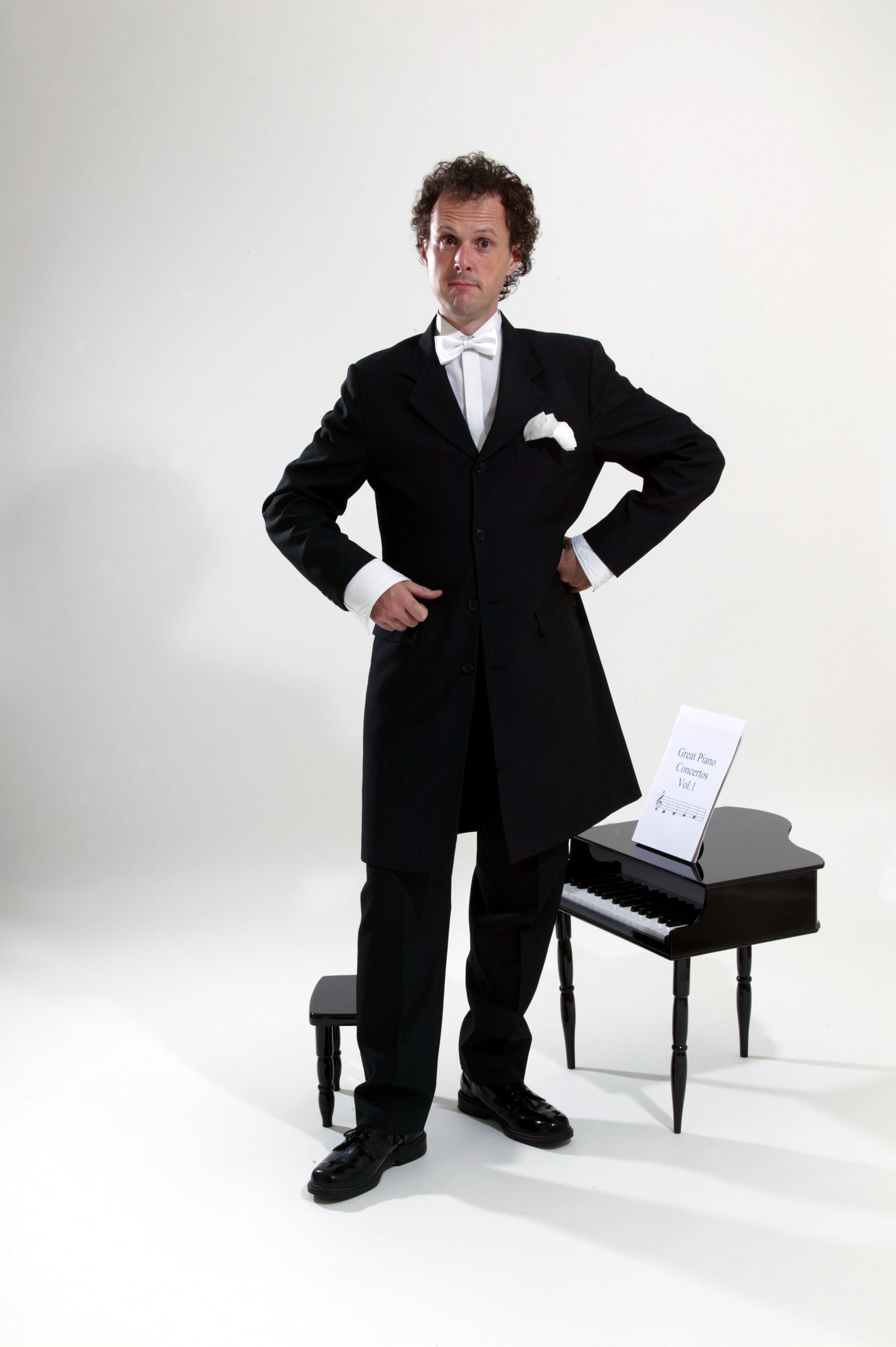 United Kingdom Rainer’s Hersch’s Victor Borge: Rainer Hersch with Danny Driver (piano), Laura Ruhl Vidal (soprano). Cadogan Hall, London, 12.10.2018. (JPr)
United Kingdom Rainer’s Hersch’s Victor Borge: Rainer Hersch with Danny Driver (piano), Laura Ruhl Vidal (soprano). Cadogan Hall, London, 12.10.2018. (JPr)

I hope Rainer Hersch will forgive me, but I naturally assumed he was German and that might cause a barrier to my total involvement in his tribute to Victor Borge. He was actually born in England to a German father and English mother, whereas I was born in England to an English father and Austrian mother, so that explains why he is called Rainer Hersch and I am Jim Pritchard! Victor Borge, you may well ask, who is Victor Borge? That indeed was on the lips of many around me in a well-filled Cadogan Hall. Some professed to a vague recollection, if any recollection at all. Let me say straight off that if you are one of them there is still so much you would get out of this laughter-filled and occasionally thought-provoking show. A one-man effort mostly but here with additional pianist and soprano.
What we see is an extraordinarily talented conductor, pianist, comedian and broadcaster honouring another – ‘The Great Dane’ – born nearly 110 years ago and famous for his Comedy in Music that began on Broadway on 2 October 1953 that is remembered as the longest running one-man show in the history of theatre. I cannot recall the first time I saw Borge live, but all I know is from that moment on I rarely missed any of his numerous return visits to the U.K. or any TV show he was appearing on and I also had any available LPs and videos – remember them? Basically, he had developed his own style with Comedy in Music and it was that he trotted out from then on till his last performance when he was over 90. He died in 2000 in Copenhagen at that age of 91. It never mattered how many times he did one of his famous routines I still laughed uproariously, and I was laughing uproariously when Rainer Hersch, with uncanny accuracy, recreated them.
Apparently Hersch, himself, knew nothing about Borge until he started getting reviews for his own shows that frequently mentioned him. In an aside Hersch said he was less interested in Borge at that time than his publicist who seemed to have the remarkable facility for getting Borge’s name into those write-ups! Eventually Hersch came across all the recordings leading to a programme devoted to Borge during a BBC Radio Four series about classical musical comedians of the past. All this comes together in this entertaining and respectful tribute – lasting a little less than two hours – that is often as much about Hersch’s discovery of his own talent for ‘Comedy in Music’, as we hear about Victor Borge onstage and off.
Most comedians are well known to have demons and it is good that Hersch didn’t dwell too much on any darkness there was to the Victor Borge we saw in the spotlight. It is alluded to in the second half when Borge recalls: ‘Do you know what I always wanted in my career? Control, from the lighting to how long the show lasts to which members of the press are invited … And if things don’t go the way I want! This way I make much more money. I like making money.’ The suggestion being if those ‘things don’t go the way I want’ those responsible had better watch out!
Like Mike Yarwood’s – another name for the memory banks! – ‘And this is me’ we have Hersch morphing from himself into Borge and back on and off throughout the show. He had enough of the hangdog expression, grin and twinkling eye to make us believe it is Borge before us and the accent is pitch- and inflection-perfect.
Much of Borge’s humour can get lost in translation but you get the idea from an opening gag when Hersch/Borge gets up from the piano and says with a straight face ‘My grandfather gave me this watch, just before he died’ following it – and with perfect comic timing – ‘For twenty bucks’. This humour was interspersed with the events that made Victor Borge – born Børge Rosenbaum – into the entertainer he became. Fleeing returning to a Nazi-occupied Denmark he went to America in 1940, with little money and no English, yet in 1941 he was on Bing Crosby’s radio show and was such a success that the rest is entertainment history. Pathos there was a plenty in a retelling of how Borge returned once during the occupation – in disguise as a sailor – to see his dying mother.
Mostly it was laughter all the way from Hersch as Hersch and Hersch as Borge! For many Borge was their first introduction – or perhaps only association – with classical music. Yet surprisingly two of his well-known routines have nothing to do with music. He performed ‘Phonetic Punctuation’ for over 60 years and here sound effects replace punctuation marks – this must be heard to be believed. Apparently Borge was successfully sued for having plagiarised this but – whether true or not – we were told the claimant dies before getting his money.
In ‘Inflationary Language’ he added one to every number present in the words he reads, such as: ‘once upon a time’ becomes ‘twice upon a time,’ ‘wonderful’ becomes ‘twoderful,’ ‘forehead’ becomes ‘fivehead,’ ‘anyone for tennis’ becomes ‘anytwo five elevennis’. When at the piano we had familiar moments such as a strange tune being played – with increasing confusion – from sheet music before it being turned upside down to play the actual tune and there were the last two notes played from famous works to save us – the audience – from having to sit through all of Wagner’s Ring cycle for example.
It was wonderful to have the accomplished Danny Driver as himself present to play the part of Şahan Arzruni, the Armenian classical pianist, who frequently joined Borge and played some Liszt as four hands on one piano. A comedy classic – that I had strangely forgotten – was reborn. A delightful young soprano Laura Ruhl Vidal – also as herself – became Marilyn Mulvey who also regularly appeared with Borge to sing ‘Caro nome’, as we heard again here. Vidal was frequently told off for touching the piano and also caused Hersch/Borge to strap himself onto his piano stool with a seat belt at one top note.
It was for bringing such light, joy and laughter into the world that Borge’s memory deserves to be kept alive. Borge said that as successful and celebrated as he was he would – in fifty years – be forgotten. Thanks to this superb evening if many in the audience did not know about Victor Borge they do now, and if they – like me – knew nothing about Rainer Hersch they do know now too … and hopefully they will seek out more about both these amazing entertainers.
Jim Pritchard
For more about Rainer Hersch click here.
